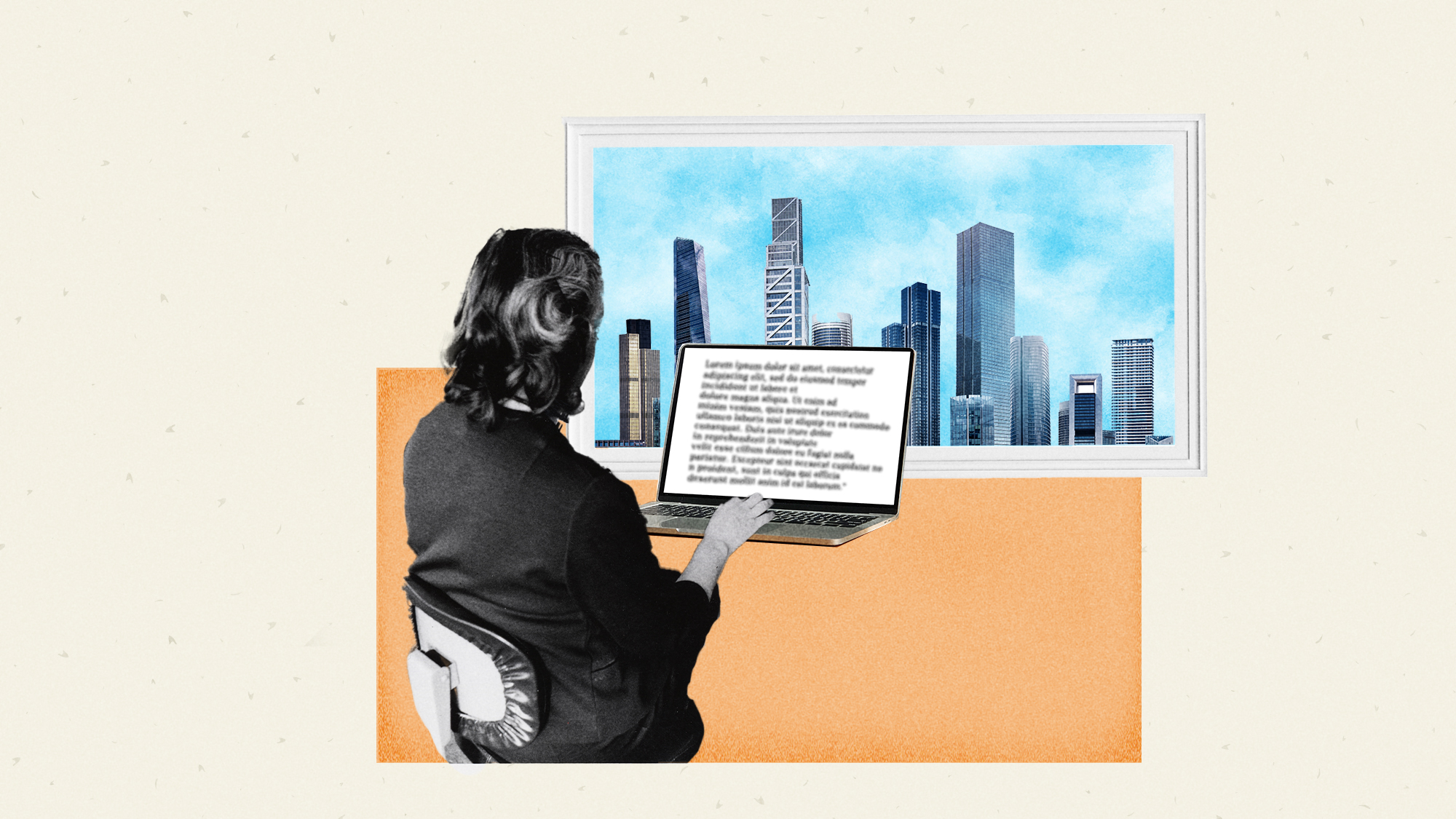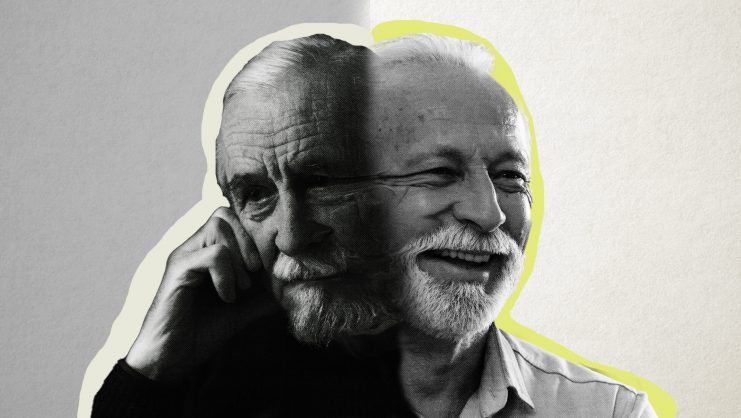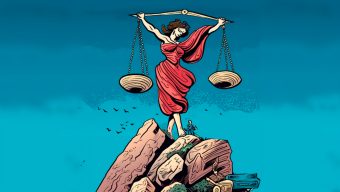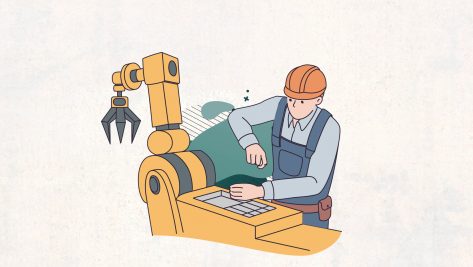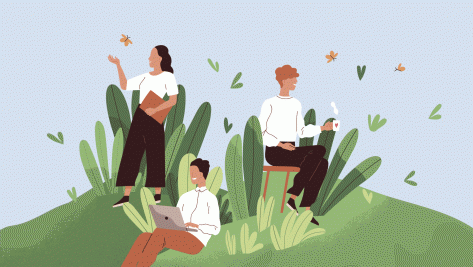In recent years, the world of work has undergone a significant transformation, with freelancing emerging as a prominent trend. If it seems like a growing number of your colleagues have become freelancers in recent years, you are on to something. According to MBO Partners, a professional services company that has been tracking this movement for 13 years, the ranks of “full-time independents” have swelled by 91% since 2020. Already in 2018, McKinsey had reported that 162 million people in Europe and the U.S. were engaging in some form of independent work.
This change in the way many of us work is thanks to a variety of factors, but particularly technological advancements that have enabled remote work and the ability to collaborate with teams and colleagues in other cities, and to access markets, customers, and clients around the world. Additionally, the modern workforce has – for the first time – four generations sharing the same space, and this has helped alter our work preferences. What many of us desire is greater flexibility and autonomy in our work and being a freelancer is a way to achieve this.
It’s interesting that the word freelance first originated from “free lance,” as in knights for hire. Sounds exciting and, indeed, the freelance lifestyle can be – though it comes with challenges alongside the benefits. Freelancers have the enviable opportunity to more or less pick and choose their projects, can potentially garner higher earnings, and may even be less subject to age and gender discrimination, as shown in a report from Trinity Business School. But at the same time, freelancers often face uncertainty, irregular income, isolation, and the constant need to secure new jobs and clients.
To illustrate the realities of freelancers and provide insight for those considering such a path, we would like to share the journeys of three people who, like us, have transitioned from employee to freelancer: Emmanuel, a computer scientist turned advisor; Alicia, a multidisciplinary consultant; and Kah Ying, a corporate research and communications strategist. These three individuals are representative of three different paths to freelancing freedom and highlight the diverse opportunities available.
Emmanuel, the computer scientist
An inquisitive third-culture kid, Emmanuel grew up with a technocrat father and an entrepreneurial mother. After moving to the U.S. for his studies, he joined a small software consultancy firm in Seattle (after considering a large tech firm.) At the consultancy, Emmanuel worked with a then-underdog Silicon Valley company doing, as he says, “really cool stuff with incredible clients.” He thrived in Seattle, enjoying kayaking, hiking, and skiing in his leisure time. However, when acquisitions altered the company’s culture, Emmanuel and some of his colleagues left to launch a startup. Riding the late 90s tech boom, their venture succeeded. But in 2000, Emmanuel chose to “step off the treadmill” and pursue an MBA in Europe. Graduating amid the dotcom crash, he skipped traditional employment and co-founded a second startup.
Shortly after, Emmanuel began an accidental freelance career. He started getting calls to build apps for the nascent iPhone. Then, after starting a third venture that met with regulatory challenges, he took time to reflect on work, freedom, and neglected interests. As he took this time, his friends sought his professional help – and this is what he has been doing ever since. The biggest change for Emmanuel has been moving from pursuing a single ambition to managing a variety of diverse projects. He says his entrepreneurial background has been crucial, because a freelance career is like a one-person startup. Despite not being a natural at networking, Emmanuel has built strong connections over the years. His reputation now allows him to choose projects that align with his interests and values.
Now an advisor to CxOs, Emmanuel values freelancing for its work-life balance, allowing for family time, mindful living, and community engagement. He’s studying chemistry and corporate governance to prepare for future climate change-focused ventures.
Alicia, the multidisciplinary consultant
Born to an Ecuadorian mother and an American father, Alicia’s multicultural background instilled in her a deep appreciation for diverse experiences. Her family’s frequent relocations due to her father’s career fostered in her a belief that she could achieve anything she set her mind to and while her parents’ sole expectation was excellence in her endeavors, Alicia found herself more inclined to be “good” at many things rather than deeply committed to any single pursuit.
The pandemic in 2020 marked a turning point for Alicia when her venture capital job was furloughed. Seizing the opportunity, she transitioned into independent consulting, securing projects through conversations and referrals. Alicia initially pushed her limits as a freelancer but soon realized that, as a successful generalist, she was often asked to tackle various tasks simply because she could handle them. This led to a crucial insight: just because she could do something didn’t mean she should.
To focus her energy, Alicia conducted a self-analysis, looking at what she enjoyed doing, whom she needed to partner with, and the time-to-financial payoff. This led her to focus on productized website design, a specialization that offered clear milestones and better time management.
Alicia networks online and attends at least one physical event per week. Her target clients are service-based professionals and small business owners like her, so sharing experiences is both productive and enjoyable. While she takes pride in what she does, Alicia makes sure her work fits into her life and not the other way around and is focused on a lifestyle where she can “travel, relax, and explore hobbies, and integrate it all with work.” She has realized that she is not interested in building a company and hiring staff. Instead, Alicia focuses on creating a holistic approach to her professional development.
Kah Ying, the corporate research and communications strategist
Kah Ying, the third of four children, grew up in Singapore with a unique freedom to explore her creativity. Unlike her older siblings who were pressured to conform, she was allowed to craft imaginary worlds, inspired by frequent visits to public libraries. Her love for storytelling, in Mandarin or English, blossomed further when her family moved to Pakistan for her father’s UN job.
Despite calls to become a teacher, Kah Ying chose to study English Literature in Australia. After being rejected from a master’s writing program, she opted to freelance as a copywriter and editor for academics, a career that satisfied her desire for growth and her love for deep research across topics.Her life took a turn with the birth of her autistic, non-verbal son, Sebastien. This experience grounded Kah Ying, revealing the limitations of perceiving life solely through words. The flexibility offered by freelancing allowed her to balance her career with caring for Sebastien.
For the past two decades, Kah Ying has built a thriving freelance career, fueled by word-of-mouth and positive testimonials. While she sometimes envies the social nature of traditional workplaces, she finds contentment in working alone at her desk. Through freelancing, Kah Ying has successfully crafted a fulfilling career and personal life, balancing her passion for intellectual growth with the needs of her family.
Ten tips for aspiring freelancers
Independent work, whether planned or serendipitous, is not for everyone. The isolation and constant struggle to bring in new business can be quite challenging. If you are contemplating the freelance life, here are ten things to keep in mind, inspired by the four-element framework developed by business school professors Gianpiero Petriglieri, Sue Ashford, and Amy Wrzesniewski. We’ve added a fifth one: learning.
Place
- Explore various work environments, from home offices to cafés, to find your ideal setting. You may find different spaces serve different types of work.
- Use your chosen space to create community and foster inspiration.
Routines
- Establish a clear structure for your time, including daily, weekly, and monthly schedules.
- Allot time for networking, your hobbies, and passion projects.
Purpose
- Align your work and projects with your personal definition of success, whether its reduced hours or a tall mission.
- Integrate your broader personal purpose into your work.
People
- Focus on continuously building new connections while nurturing and deepening existing relationships.
- Understand that networking benefits may be indirect but valuable.
Learning
- Figure out your preferred learning style, from on-the-job learning to formal education.
- Combat isolation by staying curious and finding different ways to engage with the world.
© IE Insights.



